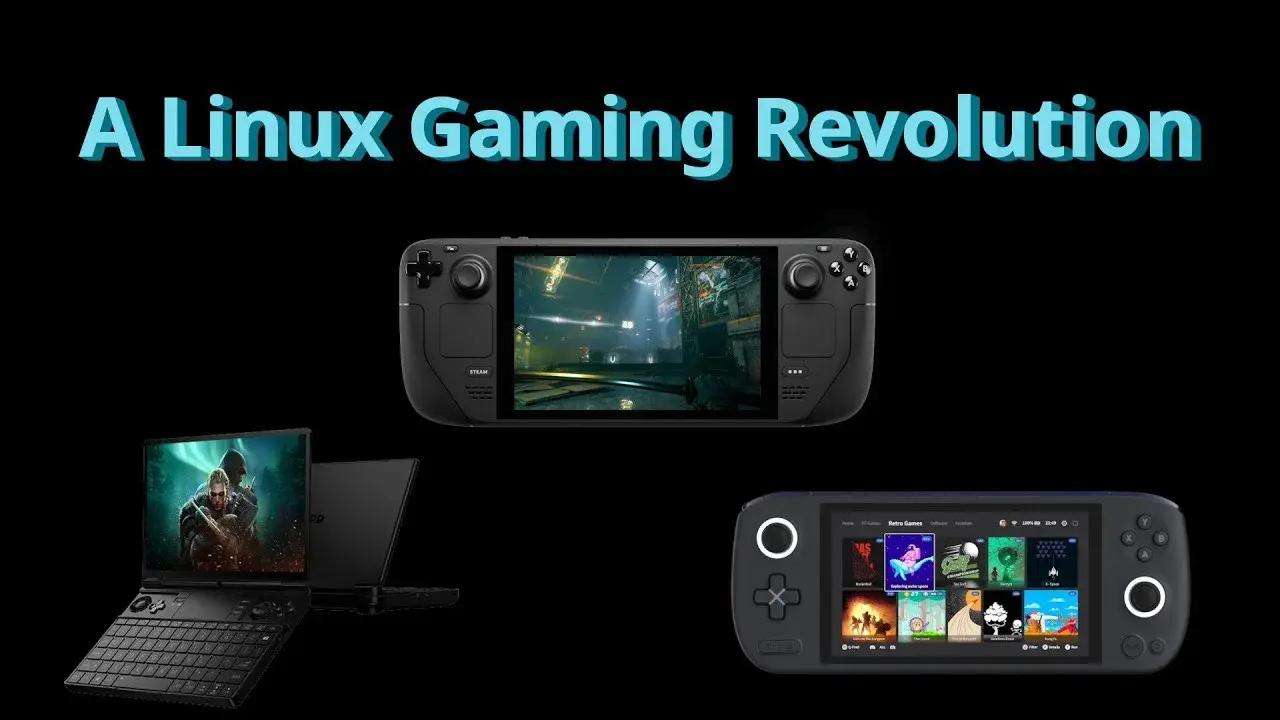32
#Linux for gaming? You would have been laughed out of the room not long ago but thanks to the #SteamDeck more vendors are going to start using it.
Source links:
https://www.gamingonlinux.com/2022/03/onexplayer-looking-at-shipping-handhelds-with-steamos-like-the-steam-deck/
https://www.gamingonlinux.com/2022/07/gpd-talk-about-cooperating-with-valve-for-steamos-on-their-devices/
https://www.gamingonlinux.com/2022/07/ayaneo-to-have-their-own-ayaneo-os-based-on-linux/
Follow me: https://twitter.com/gamingonlinux
Read news: https://www.gamingonlinux.com/
Watch live: https://www.twitch.tv/gamingonlinux
Throw coins at me like I'm your Witcher: https://www.patreon.com/liamdawe
Join Discord: https://discord.gg/AghnYbMjYg



I see it somewhat differently, IMO the Linux gaming revolution is an ongoing process that multiple parties have contributed to for more than a decade, rather than a singular event. The Steam Desk is the latest product of the Linux gaming revolution, it builds on past achievements and paves the way for new ones in the future.
I’m no Linux historian so perhaps I’ve got something wrong, but this is my list of significant achievements that have contributed towards the Linux gaming revolution:
Valve (and others) have really put in a lot of effort to make Linux gaming happen, but my point is that the Steam Deck isn’t the one singular thing that we can thank for Linux gaming. It wouldn’t have brough any kind of revolution if released in 2016 (see Smach Z for example), and if the Steam Machines were released in 2022, perhaps they would’ve been just as successful.